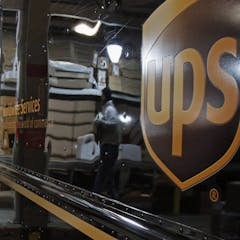
Articles on Transport
Displaying 1 - 20 of 406 articles

The just-settled lawsuit accused Uber of knowing that its drivers were breaking the law, paying their fines and “greyballing” investigators.

An improved public transport system and mapping of hotspots by law enforcement agencies would reduce susceptibility to crime in Lagos, Nigeria.

There is no data to speak categorically on whether concrete pavement is better than flexible pavement for Nigeria.

Australia’s move towards net zero emissoions by 2020 is in danger of stalling. If it is not to fail, the nation urgently needs a government plan, aligned with industry and with public support.

The Welsh government wants to make residential roads safer and quieter but not everybody agrees with dropping the speed limit from 30mph to 20mph.

The National Party’s transport policy risks locking the country into a car-dependent, high-carbon future.

A ban on Lagos’ motorcycle taxis is unpopular, and now the governor who introduced the ban is back to tackle transport problems.

The city of Accra has no plan to tackle pedestrians’ behaviour.

Cycling in Canada has been experiencing a great boom in recent years. Yet, there was no consistent and complete way to measure cycling infrastructure, until now.

Returns cost companies billions of dollars in lost sales. They also generate emissions and packaging waste. Two logistics experts offer some tips from psychology for more sustainable returns.

A new book focuses on the politics of road transport, the everyday corruption and the hard-living world of transport workers in Lagos, Nigeria.

Illinois passed the latest law requiring new apartment buildings to be wired for EV chargers. Now apartment communities are figuring out the best ways to make shared charging work for everyone.

A deadly crash in India that claimed the lives of around 300 people has refocused international attention on the importance of railways in the country.

Faced with a Germany-led coalition seeking to ban internal-combustion-engine car sales from 2035, the EU needs to stay firm on its core economic principles.

Smoother and quieter, the car of the future comes with one nauseating hitch.

If electric cars are useful for the energy transition, they’re not without flaws and drawbacks and should not make us forget the need to reduce car use.

The negative effects of conflict on human capital – particularly nutrition, health and education – are larger than commonly thought.

Urban expansion in Sub-Saharan Africa and the need for daily mobility

California is one of the world’s largest economies, and it’s aiming for net-zero emissions by 2045. A transportation expert involved in the plan explains why it just might succeed.

Major new policies are still needed to accelerate the road transport transition. There’s good news, however: Australian motorists have been promised more choice soon.
